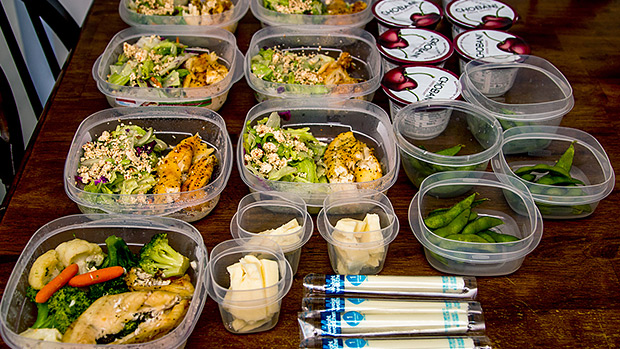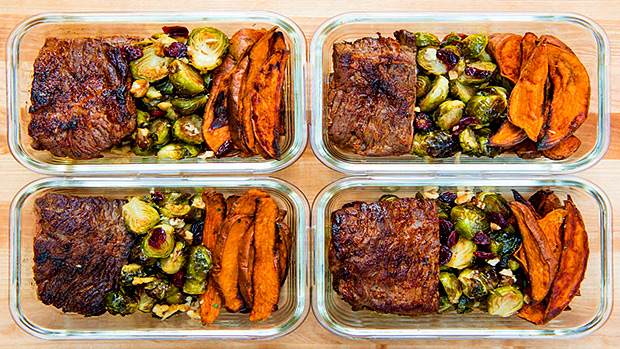No Succulent Ducks
Most gym rats think of blood sugar only in one-dimensional terms. They realize that if it gets too high, you invoke a big surge of insulin that can preferentially store energy as body fat. Raise it too high, too often, and you turn into a pudgeball.
But high blood sugar does something else, too. You know how meat turns brown when you apply heat? That happens because of a process called the Malliard Reaction. It's simply the binding of sugars to protein, but it's pretty much identical to what happens to your body when you habitually keep blood sugar levels above approximately 85 dl/mg.
If this Malliard Reaction continues in your body unabated, you're effectively slow-cooking yourself, and I'm not talking cooking yourself into a tasty, succulent, mouth-watering duck, but an overdone piece of chuck steak that no amount of tenderizer can fix.
Premature aging takes place, bringing with it kidney disease, joint deterioration, stiffening of connective tissues, cataracts, and atherosclerosis.
And, as mentioned, these perpetually high blood-sugar levels in the shorter term can lead to a host of metabolic problems, including, but not limited to, insulin resistance and its hefty partner-in arms, fat-assedness.
The trouble is, just about everybody in the fitness industry has been told to eat 6 times a day, never let him or herself go hungry, and work hard to maintain blood levels "steady" over the course of several years.
This is a dumb strategy that ironically can lead to the aforementioned problems, in addition to possibly causing Type II diabetes to develop.
Proof? The Proof is in the 6-Times-a-Day Pudding!
I don't have a lot of proof for this. I do, however, have logic, experiential evidence, and at least a study or two on my side, though.
Logic tells me that challenging your system with a perpetual flood of blood sugar, over time, desensitizes the cells to insulin. That's just the way the body works. As far as experiential evidence, I used to eat 6 meals a day for a long time. It worked... until it didn't.
There's not a lot of experimental evidence to back me up, but one study in particular seemed to corroborate my observations. It's titled "Effect of meal frequency on glucose and insulin excursions over the course of a day" (Holmstrup, et al, 2010).
Rather than regurgitate all the particulars of the study, suffice it to say that a group of normal-weight test subjects who ate 6 meals a day exhibited significantly higher blood sugar values than those who ate 3. Despite eating the same amount of calories, the fewer meals group had 30% lower blood sugar values than those who ate 6 meals.
Additionally, there are several studies out there that suggest that fasting, which is, after all, a practice that translates to eating fewer meals, increases insulin sensitivity markedly.
Are There Any Plusses to Eating 6 Times a Day?
The 6-meal-a-day advocates will burp out the argument that eating that often boosts the metabolism. Yeah, it does, but so does eating 3 or 4 times a day.
Let's say you ate one of your 6 daily meals and it had 500 calories. It would take about 50 of those calories to process a mixed nutrient meal (about 10%), but if you ate one of 3 daily meals and it contained 1,000 calories, it would take about 100 of those calories to process the food. Again, about 10% of the total. That's a wash.
Others will tell you that eating 6 times a day will help you curb hunger, but researchers have concluded that eating that often actually makes you hungrier. So there.
What to Do?
If you're a "big" guy; if you eat several meals a day; if you eat carbohydrates indiscriminately; if the only veins showing on your body are on your private parts; if the existence of your abs is as dubious and apocryphal as the existence of the Loch Ness Monster, you're probably at least a little glucose intolerant and insulin resistant and potentially on the way to full-blown diabetes.
One of the simplest ways to remedy the insulin resistance problem is to change your eating habits. Do a dietary downshift from 6 meals to 4 or even 3. You don't need to necessarily eat less, just less often. You could also follow the recommendations I listed in Increase Insulin Sensitivity, Get Abs.






